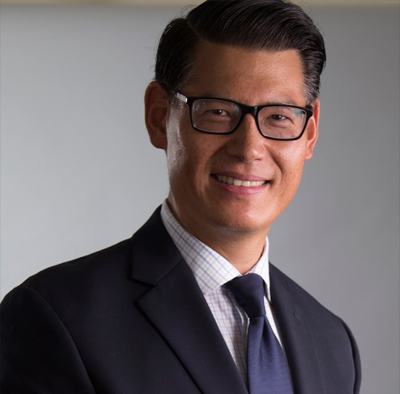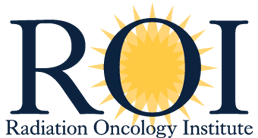Join Y. Luh, MD

Please tell us about your role at St. Joseph Hospital.
I am a general radiation oncologist in rural coastal northern California, serving patients from three counties. Besides pediatrics, my practice sees everything. I enjoy practicing in a small community where it’s easy to know everyone and their families. I serve on the St. Joseph Hospital Foundation Board with fellow community members to help raise money for hospital expansion and upgrades. I represent St. Joseph Hospital to the Providence Northern California Cancer Institute and represent the northern California region to the Providence Health System’s Cancer Leadership Committee. I am also the clinical chair of the Providence Health Radiation Oncology Focus Group where issues relevant to radiation oncology are addressed on a system level.
Why did you choose radiation oncology as your specialty?
Although I had a wonderful time during my fourth year radiation oncology rotation, I didn’t feel I was ready to commit to a field that seemed to be super specialized. I completed an internal medicine residency and worked two years as an emergency room attending before training in radiation oncology. It turns out that radiation oncologists have to know a lot of clinical medicine. What attracted me to radiation oncology is that in addition to working with state-of-the-art technology, we connect with patients at their most vulnerable time and develop long term relationships with them as part of their survivorship plan. Radiation oncology is the perfect marriage of the physical sciences and clinical medicine. We actually know how to conduct a head-to-toe physical exam, while understanding radiographic anatomy and pathology. We do procedures in the operating room. And because cancer affects every organ system, we interact with just about every specialty.
How do you envision the future of the field of radiation oncology? In what ways would you like to see it grow or evolve?
I envision the future of radiation oncology as described in ASTRO’s strategic plan with radiation oncologists being leaders in cancer care and research. I look forward to new interfaces between radiation oncologists and treatment planning systems that will free us from looking at a 2D screen and using a mouse. Could treatment planning be accomplished with something similar to Ironman’s Jarvis, where we could interact with simulation images (CT, MRI or PET) to contour (or sculpt) our volumes, and use AI and radiomics to predict the long-term response to our treatment plan via various treatment modalities and permutations (3D/IMRT/SBRT/brachytherapy +/- chemotherapy/immunotherapy/biologic therapy)?
I would love to see a new level of personalized radiation oncology when we can tell a patient, “This is what your PET/CT is going to look like in six months if we do this combination of IMRT and immunotherapy. Based on your tumor genomics, circulation, metabolism, your current diet, and activity level, you have a 38% risk of developing a metastasis in segment VII of your liver after two years. If you eliminate intake of your weekly bourbon and start walking for 15 minutes a day, you can bring that risk down to 22%. Nevertheless, if and when that metastasis occurs, we will be able to deliver SBRT to ablate the lesion before it reaches a 5 mm diameter.” I hope to still be practicing when that day arrives.
What are some of the benefits of being a member of the radiation oncology community who is active on social media?
Radiation oncology has a vibrant global social media community. I marvel at the connections we can make through social media, mitigating the isolation we may experience as a smaller medical specialty. Questions are asked and opinions are shared. Notifications about #radonc journal clubs, tweet chats, webinars, and upcoming conferences keep us informed. Happy announcements are made, and congratulatory tweets come pouring in. Heart-breaking and frustrating experiences are shared, and the #radonc family chimes in to give support or express outrage. Social media has connected us, and as a cohesive group, we are stronger.
What prompted you to become a member of the ROI Founders’ Circle in 2015 and to become a member of the ROI President’s Circle in 2019 and 2020?
As a community practice physician, I am not an investigator. I am never going to be the PI of a clinical trial. But knowing that I can have a role in making that trial possible for a budding investigator is what prompted me to be a Founders’ Circle member and subsequently, a President’s Circle member. Those of us practicing in the community need our fellow radiation oncology investigators to do the research that dictates what we do for our patients.
What would you tell others who are considering a financial contribution to the ROI? Why should they support the ROI?
The ROI exists to address a glaring disparity in cancer research. Radiation oncology specific research is grossly underfunded by the NIH, and their level of funding does not represent the importance of radiation therapy in cancer treatment. Our field also does not enjoy the generous pharmaceutical research funding afforded to systemic therapies. This is why we need the ROI. Supporting the ROI means giving our radiation oncology investigators a lifeline to initiate and continue the research that defines the important role radiation oncology plays in cancer treatment.
What would you like to accomplish as the new vice chair of the ROI Development Committee?
I’d like for the ROI to live in the consciousness of all ASTRO members. If you are an investigator, consider applying for an ROI research grant. If you aren’t, consider what you can give to help support those investigators.














